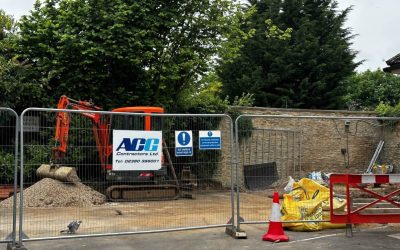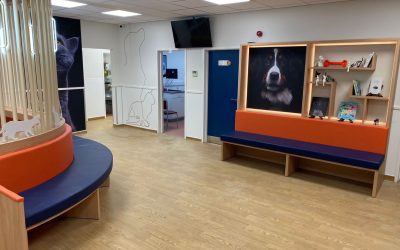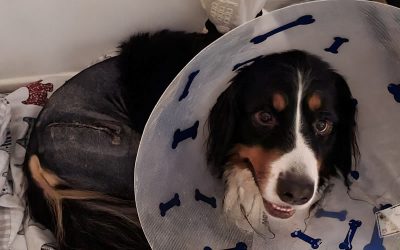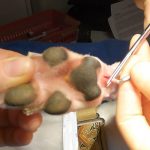Winston, a 6 month old miniature Dachshund, hadn’t been with his new owner very long when one morning he wouldn’t eat and was retching intermittently. He collapsed at the end of his walk and was rushed into the practice.
He was depressed, hypothermic (cold body temperature), was struggling to breathe and his gums were pale from shock. Chest x-rays showed a very alarming picture – Winston’s stomach was only partly in his abdomen and mostly in his chest!
The diaphragm is a sheet of muscle which separates the chest from the abdomen. It keeps the lungs & heart sealed in the chest cavity and it helps to inflate the lungs, especially when increased oxygen is needed such as during exercise.
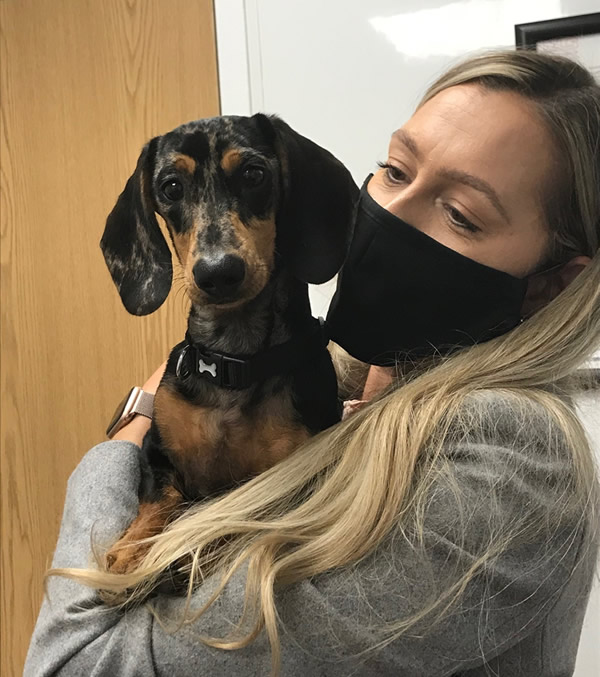
It appeared that Winston had a hole in his diaphragm which had allowed some of his abdominal organs to be sucked into the chest. The stomach had a build-up of gas which couldn’t be released and as the stomach enlarged, the lungs became more compressed. If this continued Winston would asphyxiate and die.
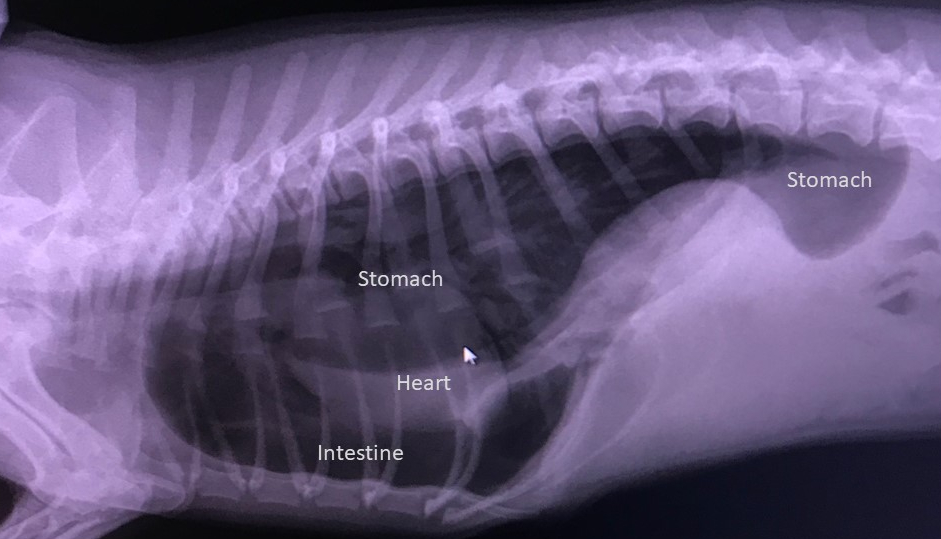
Vet Cliff quickly took over from colleagues Kyra & Lauren who had made a start stabilising Winston. With the owner’s permission they prepared to anaesthetise the critically ill puppy. Things then took a turn for the worse as Winston crashed; his heart stopped, and he became lifeless.
Regular CPR (cardiopulmonary resuscitation) training suddenly paid off as one nurse started chest compressions, someone else put a tube in his airway & drugs were prepared to try to bring him back.
Incredibly, after some amazing work, Winston’s heart restarted and the anaesthetic went ahead to perform the surgery. Winston’s stomach, along with his spleen, duodenum and pancreas were all in the chest cavity squashing his lungs into a third of their normal volume.
Vets Cliff and Lauren carefully pulled the abdominal organs back through a large hole in the diaphragm. Head Nurse Louise and Trainee Nurse Becky provided invaluable assistance whilst monitoring Winston’s vital signs and managing the automatic ventilator which was breathing for him.
Thankfully, they were able to suture the large defect in the diaphragm which we presume was there from birth (congenital), though this can happen after major trauma like an RTA also. The lungs were gently reinflated to fill the restored chest cavity and finally the large abdominal incision was closed.
Winston made a slow but steady recovery over the afternoon. Despite having died briefly before undergoing a major operation, Winston made a miraculous recovery. By the next morning he was eating chicken enthusiastically and breathing well. 2 days later he was strong enough to go home and now appears to have made a complete recovery.
Winston’s case is rare and though we believe he was born with the defect; he presumably had lived a pretty normal life until the stomach started to blow up in his chest. This case is very heart-warming because Winston recovered, despite the odds being against him.
However, if it weren’t for the teamwork and rapid responses of Jackie on reception who recognised how serious the problem was and rushed him through for treatment, the nurses and animal care assistants who rallied around and played their roles in the live-saving CPR and the vets who ultimately performed the lifesaving surgery; without all of these people working together as a team, the outcome could easily have been poor.
I have much admiration and gratitude for the NHS and key-workers who got us through the summer crisis, but I’d also like to give a clap to everyone in our team, most of whom worked right through lockdown, to ensure that pets have had the care they needed and deserved.
Enjoy your pets
Jason Williams – Bicester Vets

Building Plans for 2024
We have also commenced a major construction project externally which will add significantly to the facilities we can offer to our patients
Welcome to our NEW Reception & Waiting Room
Our aim was to make a beautiful space which we can all be proud of, but essentially, we needed to retain practicality and ergonomic design
Hip Hip Hooray for Ava
Ava is now seven months on from her surgery. She is very lively and is behaving like a puppy again!

